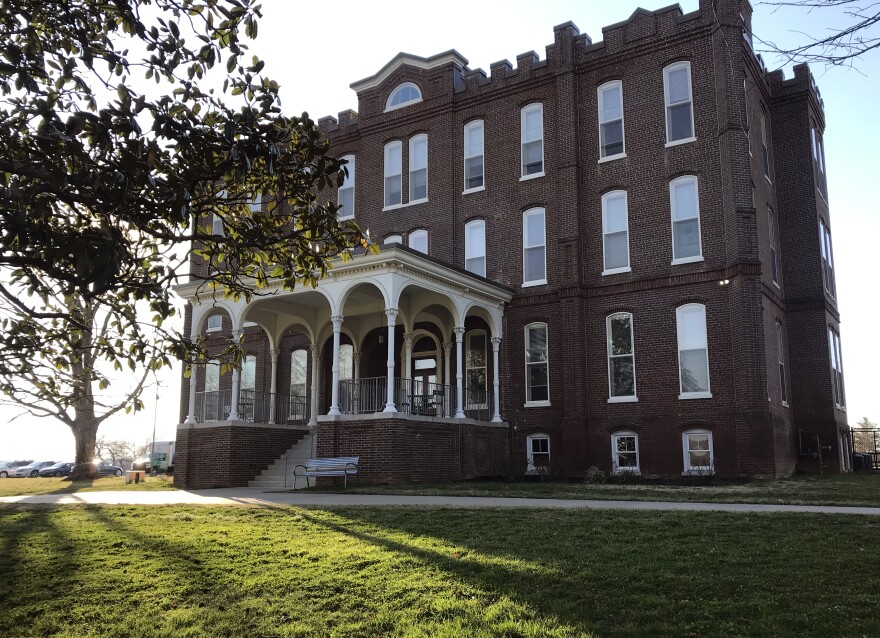Sitting in front of Knox County’s Park and Recreation building in Lakeshore Park, birds are chirping, people are walking and kids are playing soccer. What is now a bustling park was once home to the state-run Lakeshore Mental Health Institute, shut down in 2012 in an attempt to decentralize care into the community.
Nearly a decade later, some advocates say there are still major gaps in care. There were almost 200 inpatient, psychiatric beds in Knox County in 2010. Now, there are less than 40.
Dr. Bonnie Graham is part of a coalition called Justice Knox that has been calling for the county to launch a targeted mental health initiative.
“We all see one of the biggest holes is there's no place for people to go,” Graham said. “We used to send patients to Lakeshore, but Lakeshore is no more. We also see indigent patients who cannot afford Peninsula and so now where do they go?’
Peninsula Behavioral Health in Louisville, Tennessee is one of three privately-run psychiatric hospitals the state partners with to fill the hole left by Lakeshore’s closing. Knox County remains the only major metropolitan area in the state that doesn’t have a state-run hospital, which typically treats those who can’t afford treatment.
The county still receives about the same mental health dollars as it did when Lakeshore was open, but it’s distributed differently.
“We still have about $21 million dollars that comes into our county from the state to organizations like Helen Ross McNabb, so there is still state money flowing here for sure,” county Mayor Glen Jacobs said. “At the same point in time, not having that physical location here in the county has limited the number of beds that we have available which results in longer wait times and just less services.”
Helen Ross McNabb receives the largest share of the county’s mental health dollars. Leann Human-Hilliard, the regional vice president, said the redirecting of funds away from Lakeshore’s in-patient beds has created vital community services, like crisis hotlines and a jail diversion urgent care center.
“I think it's important we create a continuum in the community, to not only have enough psychiatric in-patient beds but lower levels of care so that individuals who can be successful in the community without having to go to that higher level of care be offered that service,” Human-Hilliard said.
To meet the current bed shortage, there are two private, in-patient psychiatric facilities set to open in Knox County soon: the 138-bed East Tennessee Behavioral Health set to open this year, and the 64-bed Knoxville Center for Behavioral Medicine set to open in 2022.
Dr. Bonnie Graham said the new privately-run facilities are one step, but she still wants to see a stronger public effort to coordinate between services. She regularly sees patients who get lost between disparate providers across the county.
“I see this over and over again. Patients who were lost, who fall through the cracks, who don't have the means, the wherewithal,” Graham said. “I mean we're asking them to make a phone call here, phone call there; they're just trying to stay afloat and keep from drowning.”
Even though Knox County has one of the highest numbers of mental health providers per capita in the state, there is still a shortage of providers for low-income residents, according to Knox County health planner Erin Read.
“This is really significant because those in our community who are at the highest risk of poor mental health outcomes are in the low-income bracket,” Read said. “So the place with the highest risk for poor mental health outcomes is also the place where we have a federal recognized shortage of providers.”
A recent, five-year Knox County Community Health Assessment found low-income residents have three times as many poor mental health days as higher income residents. Jay McMahan, who had a sister with a mental health disorder, is one of more than 200 community members who wrote a letter to Mayor Jacobs last fall calling for a targeted mental health initiative in the county.
“So much about this is coordination between the services, and my sister struggled with this,” McMahan said. “Sometimes after you seek that official crisis treatment, it's really hard to get to that next place and that's where the gap is for so many people. They'll make that effort to get better, and then they have an appointment in West Knoxville and they live in South Knoxville or East Knoxville and they have trouble reaching that appointment.”
Mayor Jacobs pointed to the All4Knox initiative (targeting substance use disorder) and the new incoming beds in response to the letters calling for increased action, but McMahan said addressing substance use only addresses one piece of the puzzle. Amidst a pandemic that has exacerbated mental health needs, McMahan said he wants to see the county fill the rest of the missing pieces too.


